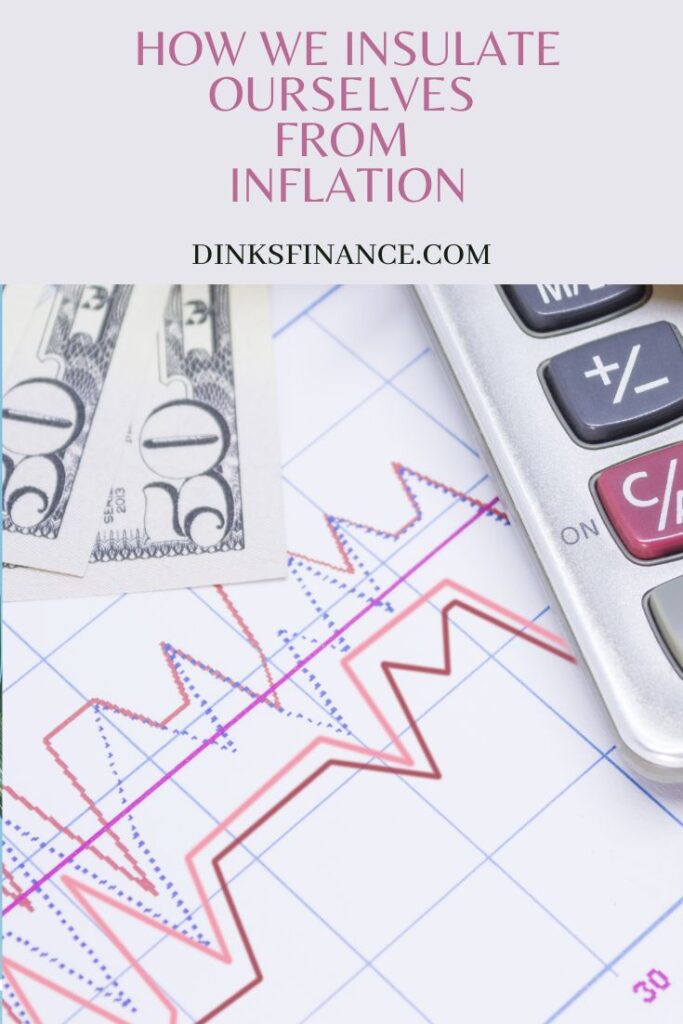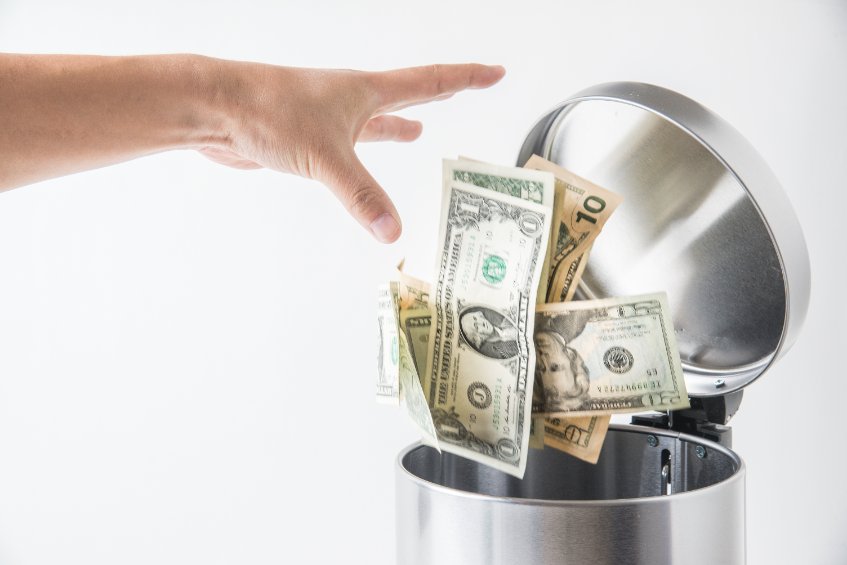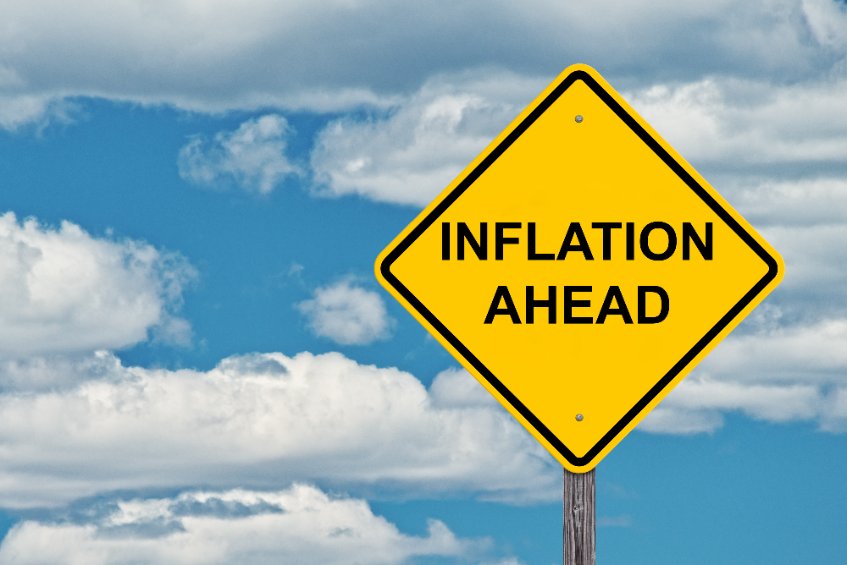
During the last recession, my husband and I struggled. We had a car payment and credit card debt, lived in an apartment, and ate out frequently. In addition, my husband was in graduate school while I worked full-time. Thankfully, I did not lose my job as many others did during that time, but we still struggled financially. However, the lessons we learned and the behavioral changes we made then help us insulate ourselves from inflation now.
How We Insulate Ourselves from Inflation
During the last recession, we made many changes to our lifestyle.
Quit Eating Out
We used to eat out several times a week, which I enjoyed. My husband enjoyed eating out, but not as frequently as we were. So, we radically cut eating out from our lives. At first, I missed it intensely, but then I adjusted. Now it’s been over ten years since dining out was a regular part of our lives, and I don’t miss it. We eat out typically five times or less per year now. Instead, I make freezer meals, so if I don’t feel like cooking one day, I pull out a freezer meal rather than going out to eat. This saves time and money. In addition, we’re eating healthier than when we ate out constantly.
Avoid Food Waste

Because we ate out so much each week, I had a lot of food waste. We’d shop with intentions of eating at home, but we wouldn’t, so food would go bad before we could use it.
However, since we gave up eating out, we rarely waste food. We enjoy eating leftovers, but I also try to repurpose leftovers into new meals, so we don’t get bored. Now, when we waste food, I feel guilty. After all, food waste is throwing money in the trash. Thankfully, that rarely happens now.
Combine Errands
We also started combining errands during the last recession to save on gas. Once we got used to doing so, it became a habit. Now, when I can’t combine errands, I get annoyed. I’d rather get all my outside driving chores done in one fell swoop rather than running errands all day.
Follow the Budget
Since college, I have had a budget, but I didn’t follow it. Then, during the last recession, I started using YNAB budgeting software and strictly followed our budget. What a difference that made! Eventually, we were able to live below our means which gave us room to start paying down debt and saving for things we needed so we wouldn’t accrue more debt.
Paid Off Debt
When the recession hit, we were mired in credit card debt. We worked hard to eliminate all credit card debt and stay out of debt. Thankfully, during this round of high inflation, we do not have any credit card debt, so we do not have to spend hundreds of dollars a month in interest due to the increased annual percentage rate.
Paid Off Vehicles
Fourteen years ago, we were paid $475 monthly for a car payment. I hated that payment because it stretched our budget to an uncomfortable level. But, with diligence, we paid off the five-year loan in 4.5 years. That vehicle is now 18 years old and has 236,000 miles on it. We’ve driven it without having a car payment for 13.5 years.
I would love a new vehicle, but I don’t want a large car loan, especially with today’s interest rates. So instead, we’re saving $700 a month for our new vehicle and putting aside any extra money we get toward the car. My goal is to pay about 75 percent in cash and take out a loan for the remaining 25 percent of the car’s purchase price. I never want to be chained to a large car payment again.
As long as our 18-year-old vehicle continues to function, we should be able to achieve that goal in the next year or 18 months.
Where Inflation Affects Us
Thanks to our behavior changes, we have not had to struggle during this time of high inflation. However, that’s not to say we’re not affected.
Increased Grocery Costs

Like others, I have noticed rising grocery costs. I always tried to make frugal meals, but now I’m trying even harder to do that. If I have an ingredient to use up or that I bought at a rock bottom price, I search the internet for recipes to make with that item. Using this tactic, we’ve tried some new meals that we enjoy.
I also find more frugal recipes. One of my favorite recipe sites is Budget Bytes.
Increased Gas Prices
We’re paying more for gas like everyone else, though we try to minimize how much we drive, which is easier now. For example, when we lived in Arizona, we frequently drove 15 to 30 minutes to get to the grocery store or other places. Now that we’ve relocated, most businesses are within a five to seven-minute drive, saving us significantly on gas.
Mortgage Rate Interest Pain
Finally, we relocated this summer and had to get a mortgage with a 5.375 percent interest rate. Our former mortgage was 3.375 percent, so this has been the most expensive way inflation has hit us.
I’m watching the interest rates, so I plan to refinance as soon as they start to drop.
High Property Taxes
Arizona had low property taxes. Our property taxes in New York, where we relocated, are triple what our Arizona taxes were per year. This has also been a brutal hit to the budget. Thankfully, my husband’s new job pays more to offset these increased expenses.
Final Thoughts
Living frugally has become a way of life thanks to the lessons we learned during the last recession. This behavior shift has helped us insulate ourselves from inflation. While living frugally isn’t glamorous, it does help protect you from the rise and fall of the economy.
Read More
How We’re Preparing Our Budget for a Recession
Why I Dined Out Constantly and How I Stopped
Coping with Inflation and Supply Chain Shortages


No Comments yet!